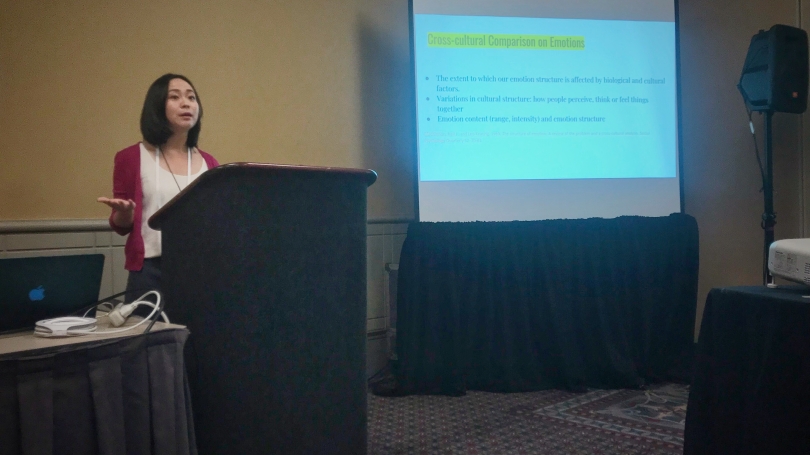
- Undergraduate
- Research
- About the Program
- News & Events
- People
Back to Top Nav
Back to Top Nav
Back to Top Nav
Back to Top Nav
Jun Zhao, who has been a postdoctoral fellow in the Program in Quantitative Social Science (QSS) since July 2017, recently accepted a tenure track position in the Department of Sociology at Georgia State University. Prior to joining QSS, where she teaches a class in network analysis, Jun completed her doctorate at the University of Georgia in 2017.
While at Dartmouth College, Jun has worked closely with Assistant Professor of Sociology Kimberly Rogers, who writes, “Jun has produced an impressive body of research as an early career scholar, and is exceptionally well-positioned to make serious intellectual contributions over the coming years. She is energetic, bright, and an incredibly hard worker.” Jun has extensively studied the social experiences of adolescents and their implications for educational and health outcomes. Using longitudinal data from adolescents in 14 classrooms across six Taiwanese high schools, Jun has shown that depression simultaneously hinders depressed adolescents’ involvement in social relationships and contributes to broader patterns of depression contagion in networks. Gendered networks play a crucial role in this process; boys’ denser and more inclusive networks promote depression transmission through peer influence, while girls’ social withdrawal inhibits contagion through the isolation of depression in local networks. Her work has also shown that “shadow” education outside of the regular curriculum widens the opportunity gap between students with and without access to these programs; that adolescents facing rigid parental expectations have a higher incidence of depression than those who view their parents’ expectations to be less strict; and that culturally embedded moral principles play an important role in shaping young adults’ impressions and reactions to transgression. In addition to her work on adolescents, Jun has also studied the role of emotional displays in criminal sentencing, and the affective dynamics that shape group collaborations.
At Georgia State, Jun is going to be involved with the Next Generation Initiative in Resilient Youth, known as ResY. According to Gabriel Kuperminc, Professor of Psychology and Public Health at Georgia State University and chair of the program, "ResY is an interdisciplinary initiative involving Psychology, Sociology, and Public Health at Georgia State and it focuses on applying a resilience perspective to understanding and intervening to reduce health disparities, broadly defined, among urban youth. As a psychologist, I am excited about collaborating with sociologists and public health scholars to broaden the resilience perspective through population health and sociological lenses. Jun’s scholarship does just that. Her work bridges psychology and sociology, offering fascinating and cutting-edge approaches to understanding how social networks have an impact on young people’s mental health."
Eric Wright, Chair of the Department of Sociology at Georgia States writes, "We are thrilled that Jun will be joining the Sociology Department at GSU this fall! Her interests in youth, health disparities, and social psychology make her an ideal candidate for the ResY Initiative. I am particularly excited because Jun brings special expertise and training in quantitative network analysis that will be very helpful in our collective efforts to understand the complex drivers of the health disparities among urban youth."
QSS congratulates Jun on her new appointment and wishes her the best of luck in her future academic career.